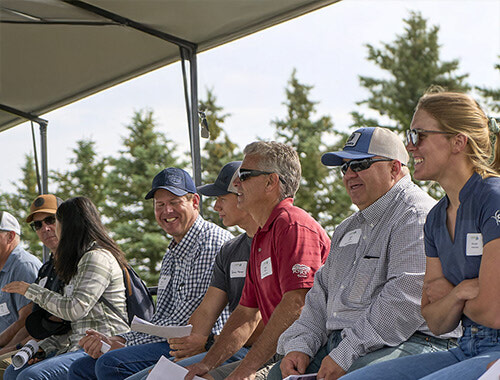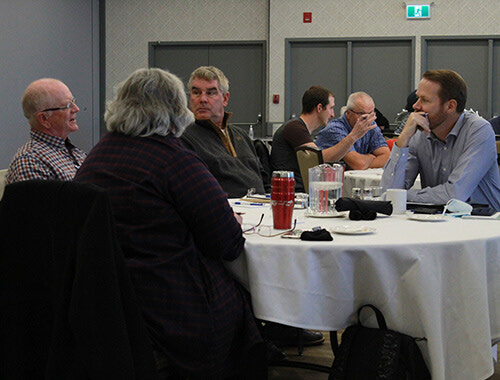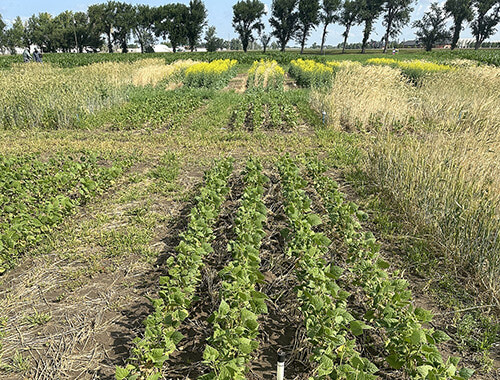Three Farming Smarter projects extended through 2024 and beyond!
Two hemp projects managed by our Agronomy Research program, funded by RDAR, and a Field Tested irrigation project, joint funded by RDAR and Alberta Innovates, have received extensions.
The first project aims to improve hemp establishment practices by investigating agronomic and chemical measures to improve industrial hemp germination and seedling survivability. Working with InnoTech Alberta in Vegreville, AB, SARDA Ag Research in Falher, AB, and AAFC in Indian Head, SK.
Hemp seed is vulnerable to cool, wet conditions and experiences low germination with patchy plant populations. A dense, uniform stand is required for high quality fibre production. This project evaluates a number of common seed treatments (Group 4, 7, 11/12) to disease impacts as well as evaluate stubble management for moisture retention and erosion/wind shear to evaluate the impact this could have for producers.
The second project explores agronomic and post-harvest straw management to maximize hemp fiber productivity and quality in Alberta. We will be working with InnoTech Alberta and SARDA Ag Research for this project to compare typical field retting with retting supplemented by microbes as well as retting over the winter period.
To process straw for industrial applications, hemp straw requires a pre-treatment process called retting to be considered as a suitable feedstock. Retting is a microbiologically driven process that breaks down the binding structure in hemp stalks. This process facilitates separation of the high-quality bast fibers from the wooden hurd core fibers. Field retting is used in Canadian farming, but fiber quality can be highly variable depending on the conditions.
Testing the Waters
Our Field Tested team, along with partners Ensemble Scientific and LiteFarm, will launch phase II of their Irrigation Decision Support System (IDSS) research project. They aim to develop a smart irrigation system to help growers improve irrigation efficiency on their farms. Over the next three years, this team will build out and fine-tune functionality in a range of different crops and environments to develop a fully functioning variable rate irrigation (VRI) prescription system, compatible with a range of pivot manufacturers.
Irrigation is a key piece of Alberta agriculture and essential for growing many high value and specialty crops. Effective water management (limiting water stress and avoiding saturation) can be challenging and time consuming.
The IDSS approach maintains a water balance model for each field, integrating real-time data from soil sensors with local weather forecasts and crop performance (ET) curves. Producers will be provided with daily updates of current soil moisture status and anticipated changes in the short term.
Accurate recommendations for timing and rate of irrigation are delivered along with this data, and can be tailored for specific crops as well as user preference. Variable rate irrigators can be provided with zone-based prescription map that are transferrable to VRI-equipped pivots for precision irrigation. Uniform rate irrigators receive the same water management recommendations that can be used to ensure water is delivered at the right rate and time for a variety of crops.
This project will work with commercial farmers to ensure the delivery of data and recommendations that are accurate, effective, and easy to use.
|
|
| Hemp retting in a proof of concept trial at Farming Smarter in 2021. The straw was sent to InnoTech to see differences in microbial communities responsible for the retting at various parts of the province. |




